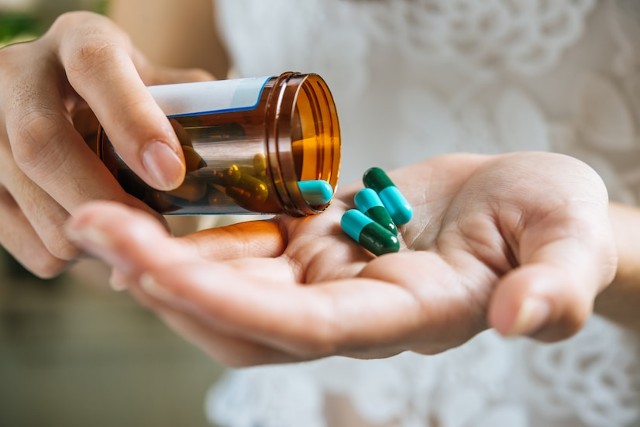Medication plays a vital role in treating various health conditions, but its effectiveness hinges on safe usage and handling. Medication safety is a crucial aspect of healthcare that demands attention and understanding from patients and caregivers alike. With the complexity of prescriptions and the variety of medications available, it’s essential to be well-informed about safe medication practices. This article provides 10 essential tips for medication safety designed to guide you through the correct procedures and precautions, ensuring that medications contribute positively to your health and well-being. Let’s dive into these tips and unravel the best practices for medication safety.
1. Understand Your Medication
Before you start taking any medication, make sure you understand its purpose and how it should be used. Ask your healthcare provider about the expected benefits and potential side effects. Make sure you know the medication’s name, dosage, and the frequency of intake. Understanding your medication also means being aware of food or activities you should avoid while taking it. Knowledge is a powerful tool in medication safety, and being well-informed about your medication sets the foundation for safe and effective use.
2. The Importance of Choosing a Good Pharmacy
Choosing the right pharmacy is a pivotal step in medication safety. A reputable and reliable pharmacy, like Riverside Village Pharmacy, not only ensures the authenticity of the medications but also provides valuable guidance and information. Look for pharmacies with licensed pharmacists who are available to answer your questions and offer advice. A good pharmacy will also keep accurate records of your medications, helping to prevent drug interactions and errors. Remember, your pharmacy is your partner in healthcare, and choosing the right one contributes significantly to the safe and effective use of your medications.
3. Follow the Prescribed Dosage Strictly
One of the most critical aspects of medication safety is adhering to the prescribed dosage. Taking too much or too little can be harmful and counterproductive. Always follow the dosage instructions provided by your healthcare provider or pharmacist. Don’t change your dosage without consulting a professional, even if you feel better or experience side effects. Dosage instructions are tailored to your specific needs, and changing them without guidance can jeopardize your health.
4. Be Aware of Drug Interactions
Drug interactions can significantly impact the effectiveness of your medications and your overall health. Inform your healthcare provider about all the medications you are taking, including over-the-counter drugs, supplements, and herbal remedies. This will help them identify and prevent harmful drug interactions. It’s also important to read medication labels and follow guidance on drug interactions. If you’re unsure about the compatibility of different medications, always consult your healthcare provider or pharmacist.
5. Proper Storage of Medications
Storing your medications properly is essential to maintain their effectiveness and safety. Most medications need to be stored in a cool, dry place away from sunlight. Some may require refrigeration. Always check the storage instructions on the medication label or consult your pharmacist. Improper storage can lead to decreased effectiveness or even spoilage of the medication. Additionally, ensure that medications are stored safely out of reach of children and pets to prevent accidental ingestion.
6. Regular Medication Reviews
Regularly review your medications with your healthcare provider. This practice is essential, especially if you’re taking multiple medications. A medication review helps assess the effectiveness of your treatment and identify any unnecessary or duplicate medications. It also provides an opportunity to check for any new drug interactions and update your medication plan as needed. These reviews can prevent complications and ensure that your medication regimen remains effective and safe.
7. Understanding Expiration Dates
Always check the expiration dates on your medications. Taking expired medication can be ineffective or even harmful. The chemical composition of some medications may change over time, leading to reduced efficacy or increased risk of adverse effects. Dispose of expired medications properly, following guidelines from your pharmacy or local waste management services. Don’t hesitate to ask your pharmacist for replacements for any out-of-date medications.
8. Be Aware of Potential Side Effects
Understanding the potential side effects of your medications is crucial. While not everyone experiences side effects, being aware of what to look for can help you identify them early and take appropriate action. If you experience any unexpected symptoms or side effects, contact your healthcare provider immediately. They can advise whether these are temporary, require a dosage adjustment, or if you need to switch to a different medication.
9. Communicate with Healthcare Professionals
Effective communication with healthcare professionals is key to medication safety. Don’t hesitate to ask questions or express concerns about your medications. Be honest about your medical history, current medications, and any difficulties you’re experiencing with your medication regimen. Clear communication can prevent misunderstandings and ensure that you receive the most appropriate and safe medication treatment.
10. Use Medication Reminders and Organizers
Staying organized can greatly improve medication safety, especially if you’re taking multiple medications. Use pill organizers to keep track of your medications and ensure you take them at the right times. Medication reminder apps or alarms can also be helpful tools to prevent missed doses. Consistency in taking your medication as prescribed is crucial for its effectiveness and your overall health.
Conclusion
Medication safety is an integral aspect of healthcare that requires careful attention and informed actions. From understanding your medication and choosing a reputable pharmacy to following prescribed dosages, being aware of drug interactions, and proper storage, each step is vital in ensuring safe medication use. Regular reviews, awareness of expiration dates and potential side effects, clear communication with healthcare professionals, and the use of reminders and organizers further contribute to effective medication management. By adhering to these ten tips, you can take an active role in your healthcare, ensuring that your medications work effectively and safely for you. Remember, medication safety is not just a responsibility but a pathway to achieving the best outcomes for your health and well-being.


